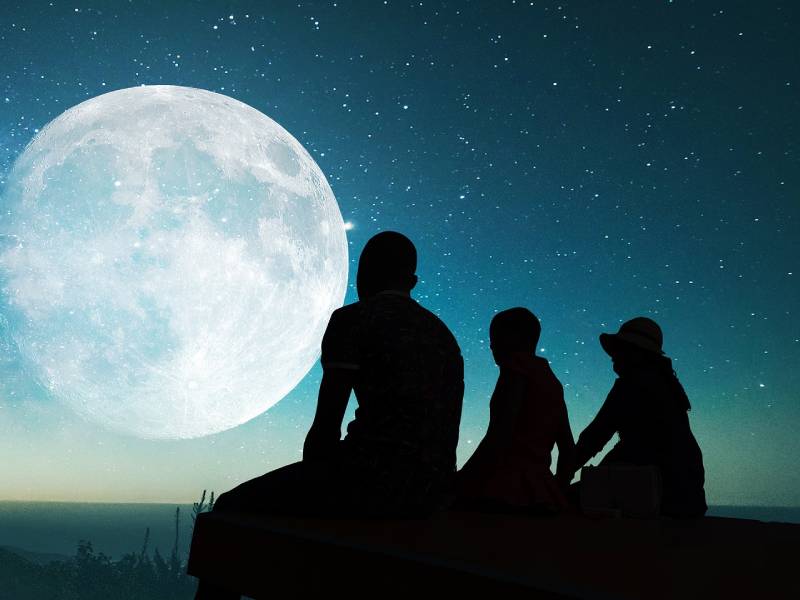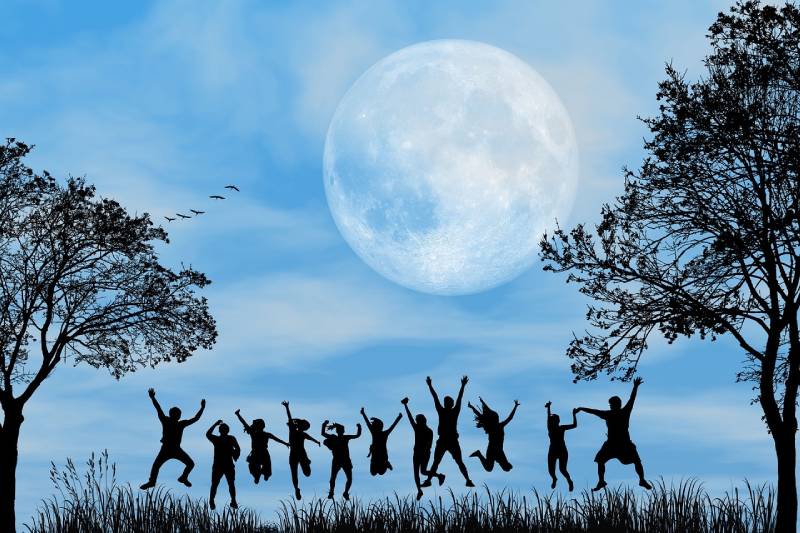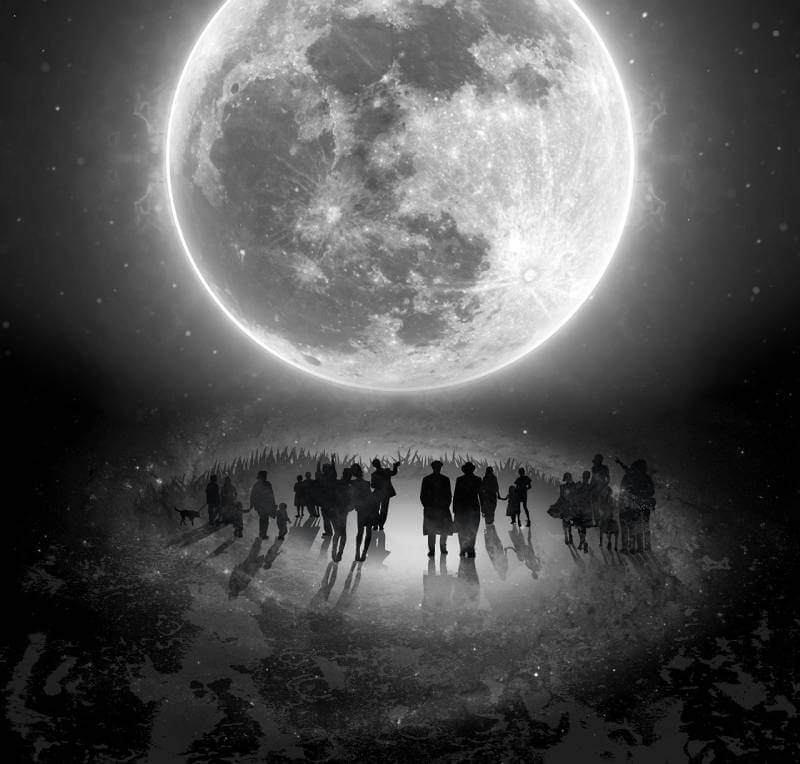Everyone has taken a moment and thought of the moon; it has fascinated us for ages. See, the moon isn’t just a beautiful nightlight. Sometimes, it’s a minute silver; sometimes, it’s a full circle; other times, it goes into the full-back again. People worldwide have told endless tales and stories that have been passed down to generations. Interestingly, the moon has hidden powers that affect most things on Earth. Its pull is so strong that everything gets affected, including us!
That strong pull is the gravitational pull, a gentle twitch that the moon uses to move around the oceans. This, in turn, forms something called tides – the waves that come in and go out at the beach. If the moon affects the oceans this much, it might also have a hand in other things. People have wondered whether the moon’s gravitational pull and power can affect humans. Scientists have tried to determine whether there is a special correlation between how we act or feel. Growing evidence shows the moon can powerfully affect human health, emotions, and behavior.
The Moon Affects Women’s Cycles
You know how the seasons vary and change, making the moon look different every few days? Well, these are cycles that occur in nature. Look at this interesting thought: the moon’s cycle, which takes about 29.5 days, might be associated with something else in humans – women’s periods. Some individuals have thought there might be a link between how the moon changes and when a woman receives her period.
Some even refer to periods as “moon cycles” sometimes! This is because the moon’s cycle is similar and close to how long a woman’s cycle is, usually 28 days. But here is the thing, while these assumptions are cool, scientists are yet to confirm the claims. The science is still vague; many aspects, like hormones, can affect a woman’s cycle. Other scientists talk of the hormone melatonin, which is responsible for cycles and sleep, and argue that it might have something to do with the moon’s light. This concept is exciting; however, more exploration needs to be done.
Moon’s Impact On The Mind and Mood
It is interesting to think how the moon can be connected to our feelings and how an individual feels inside. Aristotle, a pioneering contributor to science and philosophy, had an idea back in the day. In fact, throughout history, there have been stories about the full moon and how it can make people act a bit differently. He argued that the moon might connect to epilepsy and mental illness. Would you believe that? For many years, most people believed him! In the 1700s, some people thought that the light from the moon could alter people’s sleep and make them behave in strange ways. Now, imagine a bright full moon in the sky!

A few people thought its light might alter how well humans sleep, affecting their mood. There could be some truth for individuals with something like bipolar disorder. With this condition, people can go through times when their feelings go up and down a lot. One thing that can trigger these mood changes is when their sleep patterns get all juggled. Imagine working at night or traveling across time zones – that can alter your body’s clock. Scientists noticed that people with bipolar disorder wake up later as days pass. However, the time they spend sleeping stays the same.
This means that they’re sleeping more until suddenly, they sleep less. This sudden change can be connected to a period of excitement and high energy, like when someone is excited about something. Sometimes, when the moon is bright and full, some feel restless and anxious. In the past, people used the term “lunatic,” derived from “luna,” the Latin word for moon. Individuals assumed that when the moon was full, it had a magical way of affecting people’s emotions. The moon’s effect on our emotions can be difficult to pin down as our hearts and minds are complicated. It takes more work to determine if there’s a real connection.
The Power of The Moon
Away from science, the moon has left marks on human cultures made up of practices, traditions, and beliefs. From the old times, the moon has been associated with growing things like crops, which affects humans directly. People have connected the moon’s changing shape to harvesting and planting – like a signal to nature. The moon’s changing shape has people thinking about life and death. In some cultures, these beliefs are direr than others. Think of life and death as destruction and creation – the main reason the moon is perceived as so powerful.

In other cultures, the moon is connected to life creation. It is perceived as a motherly figure who created most things if not everything. With creation comes destruction. The Maori, for example, believe that the moon is dangerous, consuming victims and haunting them during the night. In places like Ancient Greece, the moon is seen as where dead people rest, awaiting their new life. The different beliefs can affect how people see life. Imagine for some people; they look at the moon and feel connected with those who passed on. Even without scientific proof, the moon acts and brings comfort to them.
Conclusion
There you have it – the moon greatly impacts our lives! It has been a subject of scientific inquiry, myth, and fascination throughout the years. From its potential sway over human emotions to its influence on tides, the moon’s role in our existence is undeniable. While modern science may have debunked some beliefs, the moon’s power remains.
Even though there may not be enough answers about the universe, one thing’s for sure, the moon’s energy is so much present. It’s okay to believe, whether you feel the pull of the moon’s phases or find peace in conversations with the moon. There’s more than meets the eye – the moon is a reminder of that. Even without full scientific explanations, moon magic will breed curiosity for years on end!

